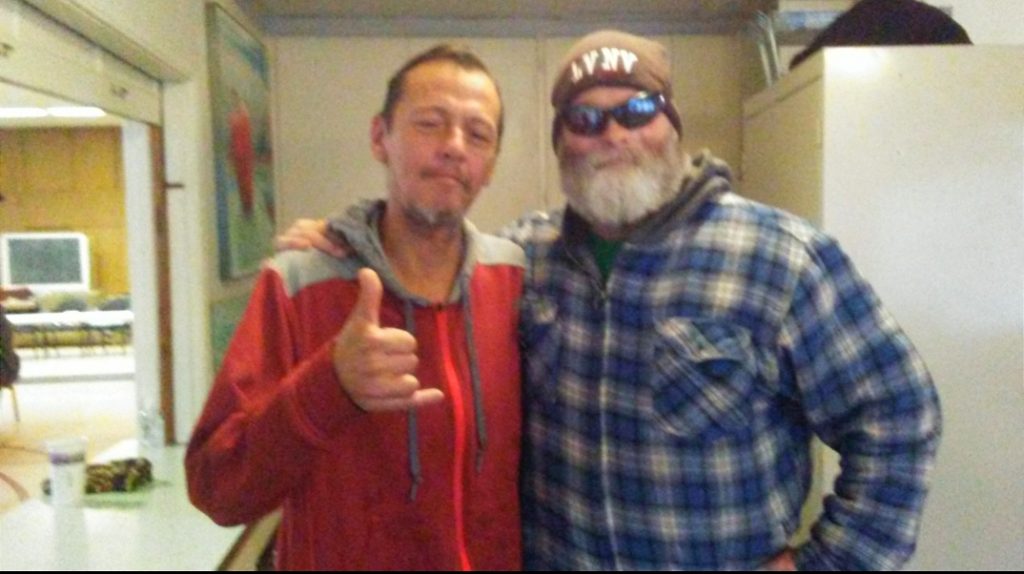Homeless veterans make up a large percenage of the homeless population in the United States. According to a 2018 report from the U.S. Department of Housing and and Urban Development, 37,878 veterans are homeless on any given night. And according to Military Wallet, an online resource for military veterans, the number is even higher: there could be as many as 67,000 homeless veterans in America—over ten percent of the entire homeless population.
How can this be? There are a number of reasons why veterans end up on the street after returning home from war. This is especially true for combat veterans, who make up 20 percent of the U.S. veteran population, according to the U.S. Department of Veterans affairs (or “the VA”).

According to the VA, 25 percent of all the military personnel who returned from Iraq and Afghanistan have shown signs of substance abuse disorders or mental health issues. But this number is much higher for homeless veterans, at 76 percent.
One of the reasons for this is that while they were at war, our military troops face opponents that grew up in environments that are often unimaginable average American citizens, who grow up in the American dream bubble. While at war, our combat military troops share comradery: they share a special kind of f***** up from experiencing repetitive horrific war time events.
But upon returning to their social group in society, there is very little that they now have in common with their previous social peers. This 20 percent of combat veterans did not receive training that could easily translate to employment in the U.S. job market. And, many of these veterans can no longer relate to the people they once knew. Their old friends and acquaintences will not understand why, and it’s not something that can be explained, even if you wanted to.
Some of the people will try to offer advice that no longer applies to where they are at in life. Others will cast their dime-store philosophy and make judgment calls based on their experiences in life. At this point you simply stop caring.
Once you come to feel estranged from your peers, you realize that all the positive thinking, Bible verses, and even prayer will not bring back the person you once were. A great deal of time is spent trying to accomplish normalcy, which only leaves you feeling more defeated. Eventually you accept that the person that was inside you is dead, even though the body continues to function.
Regardless of the fact that so many veterans end up homeless, the VA says that only 50 percent of returning vets will receive Behavioral Health Services. Some of the reasons for this are personal embarrassment, long wait times, shame and fear of being seen weak, and the stigma associated with mental health issues.
All the positive thinking, Bible verses, and even prayer will not bring back the person you once were.
In my opinion, the VA could be doing a better job of addressing these issues. With only a 49 percent approval rating source, according to the Pew Research Center, it is apparent that the VA is incapable, or has a total lack of regard for the suffering of the military veterans who return to America.
This has skewed the narrative around the number of veterans who are homeless.
Take New Orleans, for example. In 2015, Michelle Obama congratulated the city for being the first to place all homeless veterans in housing.
However, when I was living in New Orleans, I attended a military program called “Stand Down,” where veterans can go to the VA Center on a specific date and received items such as military boots, clothing, jackets, and duffle bags. At one of these events, I witnessed a minimum of 350 to 400 homeless veterans standing in line for “Stand Down.” So how could New Orleans have claimed that only 27 veterans were still living on the street?
In 2015, the New Orleans Advocate reported that while homelessness had dropped a staggering 85 percent since Hurricane Katrina, the per capita homeless rate was actually 14 percent higher in 2014 than it was before the storm. Given this, it seems unlikely that New Orleans has eliminated veteran homelessness.
I personally believe any and all U.S. veterans who have worn the uniform and sworn to defend our freedoms deserves our respect and to be housed, not discarded as damaged goods. This starts with acknowledging our homeless veterans, and doing more to make sure they don’t fall through the cracks.
I could continue batting statistics around all day long and make guesstimation of my own. However I would like to think that the people who read this will be emboldened to contact their local politicians and demand justice for homeless veterans who have lost everything and are trying to survive.
If you or anyone you know is a homeless veteran, you can consult these online resources
| National Coalition for Homeless Veterans | www.nchv.org |
| VA Healthcare for Homeless Veterans Program | www.va.gov/homeless/hchv.asp |
| Homeless Veterans Supported Employment Program | www.va.gov/homeless/employment.asp |
| HUD’s Veterans Affairs Supportive Housing program (VASH) | www.va.gov/homeless/hud-vash.asp |
| Veterans Retraining Assistance Program | www.benefits.va.gov/vow/education.asp |
Timothy Busby is a homeless writer who lives in Berkeley. He writes from his past five years of experiences while living on the streets from New Orleans to Berkeley, and many cities in between.
